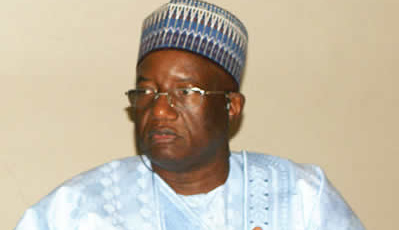The Revenue Mobilisation Allocation and Fiscal Commission (RMAFC) on Wednesday gave reasons why it didn’t intervene in the recent quarrel over remittance of oil revenue between the Nigerian National Petroleum Corporation (NNPC) and Federation Account Allocation Committee (FAAC).
The commission said it stayed away from the recent controversy because it believed the issues could be resolved amicably through dialogue.
Its Acting Chairman, Mr. Shettima Abba Gana, said this in a statement in Abuja by the Group General Manager, Public Affairs Division of the NNPC, Mr. Ndu Ughamadu.
Gana, according to the statement, was at the corporation’s headquarters on a courtesy visit, and reportedly commended it for its efforts at improving accountability and transparency in its operations.
He said the RMAFC, as a revenue monitor and auditor, was satisfied with the steps taken so far by the NNPC to improve accountability and transparency such as the publication of its monthly financial and operations report, which he described as a radical departure from the past.
According to him, the RMAFC would continue to regularly interface with NNPC to ensure that the Federation Account was properly funded.
He subsequently called for the enhancement of NNPC businesses with allocation of more oil assets to enable it operate like other national oil companies across the globe.
He noted that as an entity that generates about 80 per cent of the country’s revenue, there was need for the government to empower it to generate more revenue for the country.
The statement also quoted NNPC’s Group Managing Director, Dr. Maikanti Baru, to have explained that NNPC, apart from being a government agency that supervises government’s investment in the oil and gas industry, was also a business enterprise and petroleum products supplier of last resort.
Baru said the NNPC had being responsible for the importation of petrol into the country since September 2017 when most of the major oil marketers stopped importation.
He called on RMAFC, as an independent arbiter, to use its privileged position to ensure recovery of the cost borne by NNPC on behalf of the government.













